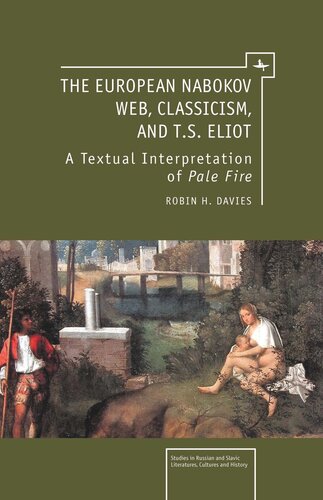

Most ebook files are in PDF format, so you can easily read them using various software such as Foxit Reader or directly on the Google Chrome browser.
Some ebook files are released by publishers in other formats such as .awz, .mobi, .epub, .fb2, etc. You may need to install specific software to read these formats on mobile/PC, such as Calibre.
Please read the tutorial at this link: https://ebookbell.com/faq
We offer FREE conversion to the popular formats you request; however, this may take some time. Therefore, right after payment, please email us, and we will try to provide the service as quickly as possible.
For some exceptional file formats or broken links (if any), please refrain from opening any disputes. Instead, email us first, and we will try to assist within a maximum of 6 hours.
EbookBell Team

4.3
28 reviewsRobin Davies here demonstrates that Nabokov’s Pale Fire has a classical unity and represents a direct attack on T.S. Eliot’s philosophical position, particularly as given in The Waste Land and as represented by Eliot’s later tendency for conservatism in literature, politics, and religion. After Nabokov was forced into exile from Germany and then France in the 1930s with his young son and Jewish wife, Eliot’s passivism must have seemed to him the very antithesis of survival. The enigmatic Pale Fire and its surface triviality suggested that there could be self-consistent logic within the obvious commentary of Charles Kinbote and John Shade’s poem. Davies places this work in its vast European context, forming a bridge between Russian and European literature which will be appreciated by scholars of both.